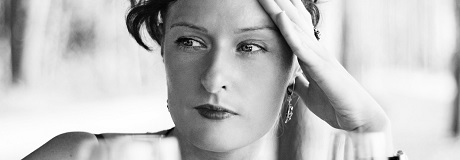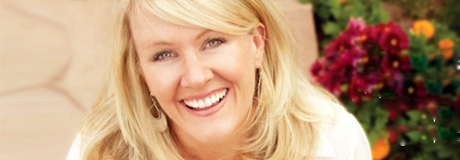3 Tips to Get Rid of Anxiety

 Photo by
Petras Gagilas
Photo by
Petras Gagilas
I must have heard it delivered a thousand different ways: Honesty is the best policy.
Precisely because I heard it a thousand times, I tended to associate the saying with less significance. It’s like hearing your mom tell you, “Put your coat on or you’ll catch a cold!”
Yeah, yeah.
Looking back, it seems I spent a lifetime wasting so much energy putting out fires because I lost sight of what was most important. Being true to myself was a concept — a nice idea for others, but not for me. I didn’t have that luxury. I had way too much on my plate.
At least this is what I told myself.
“Honesty is such a lonely word; everyone is so untrue.” Was Billy Joel really onto something, or was he exaggerating just to make a point? Regardless of his real intent, I think people are honest most of the time, especially when it’s convenient for them.
It seems coded in our DNA not to want to hurt other people’s feelings, and for that reason, we don’t always tell the whole truth. But I digress.
Nobody Really Gets Hurt?
In case you’re wondering, I’m not immune to lying. On occasion, I still conceal the truth when I think I’ll hurt or burden another.
Generally, mine are usually the well-intentioned, little lies. White lies and half-truths, the kind we all tell – you know, where nobody really gets hurt?
“Yes, let’s get together real soon.”
“I’d love to, but unfortunately I have a prior commitment.”
There’s the George Costanza, “It’s not you, it’s me” lie…
And the “Wow, I don’t normally do this so soon” lie.
Let’s be honest here. Sometimes it’s a real pain in the butt NOT to lie. We lie to others for a multitude of reasons. We lie because we think the truth won’t be received well. We lie because we don’t want the hassle of explaining ourselves if we tell the God’s honest truth.
Mostly, we lie because we just want to avoid the drama that often comes from being totally honest. Besides, some people just can’t handle the truth!
Are there exceptions? Sure, like most things, there are exceptions.
If your wife asks you if her backside looks big in that yellow skirt (and it does), lie. If you’re hiding Anne Frank in your attic, and the Nazis come knocking on your door, then by all means, lie.
Small Lies, Big Consequences
It’s one thing to lie to your buddies through cigar smoke in a poker game or to the IRS about your many deductions, but it’s quite another to lie to yourself when your health and wellbeing is at stake.
This is what I used to do. And I found that there are big consequences that come from even the smallest of lies.
I used to deceive myself in a variety of ways — ways I wasn’t even consciously aware of. We can hear the words of Plato when he said, “The worst of all deceptions is self-deception.”
It was until much later that I realized the lies I wasn’t aware of were the ones that did the most damage.
Perhaps the biggest one was, “This shouldn’t be happening to me.” In truth, since it was already happening, it was apparent that it ‘should’ have happened.
So simple I overlooked it. In my denial of what was actually happening in my experience, I reinforced what I didn’t really want in my life – by resisting it.
Another big one was, “I must wait until I feel strong enough to address my anxiety.”
An Atmosphere of Openness
This one kept me needlessly suffering for years, had me avoiding the people and things I most enjoyed, and had me living a life of quiet desperation.
But one day I noticed that anxiety didn’t like it much when I was honest with myself. I can still remember feeling something let go of me. It was palpable. It was like my belt was loosened by two holes. And it wasn’t so restricting anymore.
Fueled by lies and deception, anxiety knows its days are numbered if it finds itself in an atmosphere of openness and humility.
It feels suffocated in this kind of environment, and the last thing it wants is for you to be honest with yourself. It knows it gets to live another day if you aren’t. If anxiety has one goal, it’s simply to see another day.
Once I started being totally honest with myself, my life began to change – drastically. How quickly it began to change was a shocker.
To me, humility is a close cousin to honesty. When I’m truly humble, I can’t help but be honest. When I’m truly honest, I can’t help but be humble.
No More Shame & Blame
Free of ego, humility isn’t concerned about what others think. It has the what-you-think-of-me-is-none-of-my-business attitude.
It isn’t embarrassed or ashamed about experiencing negative thoughts and emotions. It comes with being human.
Real humility never makes excuses. Excuses are delay tactics to postpone addressing what clearly needs to be addressed. Free of shame and blame, it meets what needs to be met – head on.
If what we say and do isn’t in alignment with the principles of emotional balance and well-being, how can we expect to experience the peace and calm we say we want?
How can we ever expect to arrive at the place of true contentment if we continue to run and hide from anxiety – and give it another day?
We can say everything is “fine,” but is it really true that we’re fine? We can try to fool others – and sometimes it works – but we can never fool our actual experience. Have you tried positive thinking? It’s a nice idea if it worked, but most of the time it’s not really effective.
Don’t get me wrong, there are instances where positive thinking can be very useful (like telling yourself you have what it takes to overcome anxiety), but when it comes to directly healing anxiety, it usually falls short.
Anxiety requires a different kind of approach, one from the neck down. Honesty doesn’t reside in the head; it lives and moves in your being – below the neck.
Here are the 3 most important things I learned about healing anxiety:
1. The Core of My Character Must be Integrity
You can say you’re being honest with yourself, but you’ll never successfully trick your whole being. Because it possesses clarity of wisdom, it knows.
When what we say isn’t in harmony with what we actually do, we feel it in our being. When what we say isn’t in harmony with the principles of peace, we feel it in our body.
As hard as we may try, we can’t fool our conscience. It knows.
We already know this, but sometimes we forget that in the end, we can’t fool ourselves. As hard as I tried, I could never heal my anxiety with dishonesty. If I avoid my anxiety, I wasn’t being honest.
Avoidance and dishonesty go together. Any time I avoided what obviously needed my attention, I could be sure I was attracting more of it in my future. When I lied, I lost. When I lied, anxiety won.
2. Question the Anxiety & Beliefs
When I failed to question the validity of what my anxiety told me, I wasn’t being honest. Is it really true that I’m messed up? Is it really true that I’m going crazy?
No, it isn’t.
Since excessive anxiety is a pathological liar, it only made sense to me to counteract (and dissolve) this evil trickster with direct and uncompromising self-honesty. It can’t stand up to close examination. It just can’t.
It’s like throwing a bucket of water on the Wicked Witch of the West. When I saw that no one can address my anxiety for me, and when I saw that I was the only one who can use my own inherent abilities, I rendered myself response-able.
If we have anxiety, we have anxiety. It’s nothing to be ashamed of. Now what?
3. Responsibility is Key
If I don’t take responsibility for my anxiety (without blame or shame) I’m not being honest with myself. Self-responsibility is the key to personal effectiveness in every aspect of life.
When I tell the whole truth, I don’t have to look over my shoulder in fear of something biting me in the you-know-what later.
Honesty humbly faces anxiety, and honesty addresses anxiety, without looking away. We don’t have the luxury of being dishonest, especially with ourselves. We heal anxiety by looking it directly in the eye.
If we’re being true to ourselves, we’re much less likely to avoid the reality of our condition, and we can’t help but be responsible for what’s ailing us.
In the end, chronic anxiety (in all its forms) is a sign that something isn’t right. If setting ourselves free in this life isn’t our primary work, then what is?
You have the key. Uncompromising honesty sets you free.












Beautiful post! This reminds me of something I read the other day in Kate Northrup’s book Money: A Love Story. She discusses our fears and how we might choose to saunter up to them with confidence, rather than cowering and simmering in anxiety. That sounds like a great alternative to me! Thank you very much for sharing your insights and I look forward to reading more from you :)
Brilliant. I felt a gut response reading this.
I found your blog very interesting. Thank you for sharing thoughts on this, Alex. I have also found that walks, meditation and writing helps to clear the mind, as well being honest with yourself, helps to reduce anxiety in one’s life.